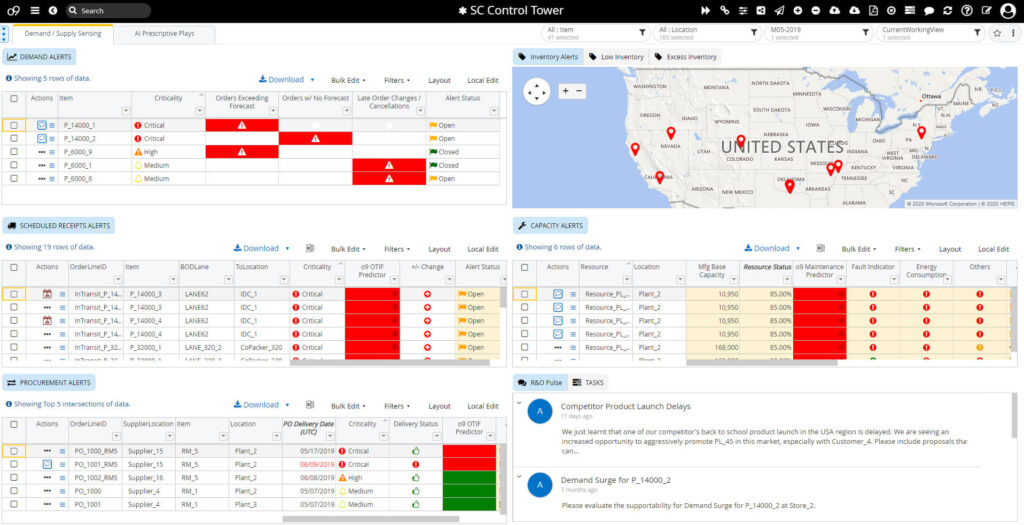o9 Solutions launches Supply Sensing
6th October 2022

o9 Solutions, a leading enterprise AI software platform provider for transforming planning and decision-making, has launched Supply Sensing, a next-generation solution designed to help companies better predict supply disruptions by localising the effect of macro-level shocks on their specific supply chain and creating mitigating strategies to avoid any adverse impact on their businesses.
o9’s Supply Sensing solution monitors internal and external factors, including agricultural yields, weather patterns, transportation disruptions, employment indices and more. It then uses o9’s predictive machine learning models and digital twin technology to map the potential impact of those macro trends to a manufacturer’s Tier 1, Tier 2 and Tier 3 suppliers. The solution is able to provide alerts on potential changes to key commodity availability and pricing up to 12 months before the Tier 1 supplier is affected – a key differentiator when compared to other solutions that can only monitor events impacting Tier 1 suppliers as they occur.
o9’s Supply Sensing solution, powered by its Digital Brain technology, then quantifies the probability of the event’s occurrence and recommends mitigation actions that are tailored to the manufacturer’s strategic objectives, such as purchasing a key commodity from a different region or at another time. Through o9’s multi-tier collaboration capability, users can also take immediate action with their suppliers to further mitigate supply chain risk. The three main use cases for o9 Supply Sensing include: Predicting the impact of major weather events on your supply chain; utilising leading indicators to predict transportation availability; and calculating the probabilistic disruption to a specific supplier or facility.
“In the wake of an unprecedented number of disruptions, supply chain leaders are seeking new ways to better predict disruptions before they occur,” said Chakri Gottemukkala, Co-Founder and CEO, o9 Solutions. “o9 Supply Sensing takes the tried and true methods manufacturers have long been using to understand consumer demand and applies them to predicting and steering clear of future supply disruptions. Equipped with the insights needed to react weeks or even months sooner to potential supply availability and pricing changes to key commodities, CPG companies that operate even the most complex global supply chains will benefit from maximised product availability and service levels while avoiding sudden cost shocks.”

